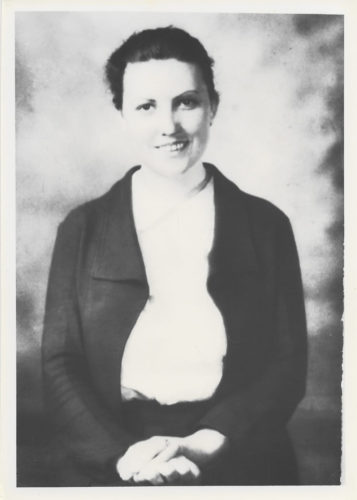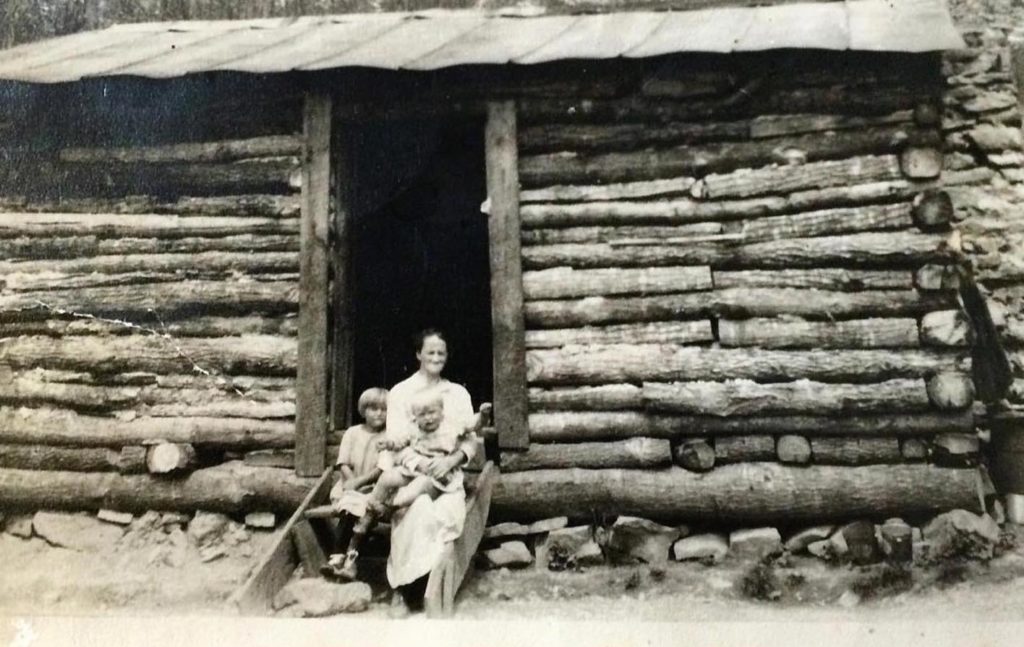When Norah Quinn McCormick reached out to us in the New Year about sponsoring a child, she told us a heartfelt story about how her grandmother first got involved with our work many years ago, largely due to the fact that she grew up in Appalachia and “never forgot where she came from,” and why now Norah wants to carry on the legacy of helping children in need.
To hear more about Norah’s story, we hosted a virtual interview with Norah in which we found out about her, her grandmother, and how they both came to believe in the power of sponsorship.
To hear more about Norah’s story, we hosted a virtual interview with her in which we found out about Norah, her grandmother, and how they both came to believe in the power of sponsorship.
SC: Where do you live and what do you do for work?
NM: I live in Washington, D.C. and work as a fundraiser for the College of Arts and Humanities at the University of Maryland.
SC: How did you first find out about Children Incorporated?
NM: My Granny, Bonnie Hobbs Barron, sponsored children for as long as I can remember. I used to see pictures of sponsored children on her refrigerator. I also remember my mom sponsoring a child shortly after my Granny passed away.
SC: Can you tell us more about your grandmother?

Norah’s grandmother, Bonnie Hobbs Barron
NM: My Granny, Bonnie Hobbs Barron, was born near Big Stone Gap in Wise County, Virginia in 1916. She grew up in a one-room log cabin without plumbing or electricity. As a child, she owned only one dress and one pair of shoes, and occasionally had to offer labor in exchange for food. Her father passed away when she was 6, and she often had to take care of her two younger siblings. She was orphaned by the age of 15, and unable to finish high school until the age of 21.
After high school, she worked as a housekeeper and caregiver for a family in Norton, until she married my grandfather in 1941. My grandfather benefitted from his participation in the Civilian Conservation Corps (CCC), as well as through military service, and had a job opportunity in Washington, D.C. They relocated and eventually settled in Mount Rainier, Maryland, where they raised five children. My Granny lived to be 89 years old and passed away in 2006. However, she never forgot where she came from in Appalachia.
SC: It sounds like your grandmother had a great understanding of the poverty that people often face in Appalachia from her time there – how did that shape her life?
NM: My Granny had a personal understanding of poverty, and as a result she never took anything for granted. Despite all the hardships she faced, she counted her blessings every day. I never knew my Granny to show bitterness over her circumstances, and she often expressed gratitude to have another day of life ahead of her.
I think her impoverished childhood inspired her to provide as many opportunities as she could for her own children. She worked very hard to take care of her family, and was proud of everything that her children and grandchildren accomplished. My Granny also had a strong faith, and believed in helping others. She was always willing to give to people in need, perhaps in part because she knew what it was like to live without.
SC: What about sponsoring a child was important for your grandmother — and now for you?
NM: Unfortunately, I was never able to ask my Granny why sponsoring a child was important for her. However, since she personally knew the challenges of growing up impoverished in Appalachia, I have to imagine she wanted to provide opportunities for children in similar circumstances. She knew how difficult her own childhood was, and she likely wanted to help create a bright future for other children in need.
I would encourage future sponsors to consider everything they have in their own life. Who and what helped get you to where you are today?
As for me, I have been reflecting on my own philanthropic priorities as we begin 2021. So many people struggle for basic necessities — food, clothing, shelter, access to education, employment, and healthcare. While this is true across the United States and internationally, my family has a personal connection to the poverty that people face in Appalachia. I hope to give back to impoverished children in Appalachia, so they can lead healthy and fulfilling lives without the burden of struggling to meet basic needs.
SC: As a sponsor, what would you say to someone who was considering sponsoring a child?
NM: I would encourage a future sponsor to consider everything you have in your own life. Who and what helped get you to where you are today? Not everyone is as fortunate to be granted basic resources to lead a healthy and fulfilling life. You have an opportunity to give back, and to help make a difference in the lives of others.
Philanthropy translates roughly to “love of humankind,” and it can be expressed through sharing time, talent, and treasure with others. If you have the financial resources to sponsor a child, you will be supporting a child’s basic needs while expressing your love for humankind. The children of this world need our love, care, and commitment, perhaps now more than ever.
***
HOW DO I SPONSOR A CHILD?
You can sponsor a child with Children Incorporated in one of three ways: call our office at 1-800-538-5381 and speak with one of our staff members; email us at sponsorship@children-inc.org; or go online to our sponsorship portal, create an account, and search for a child that is available for sponsorship.

